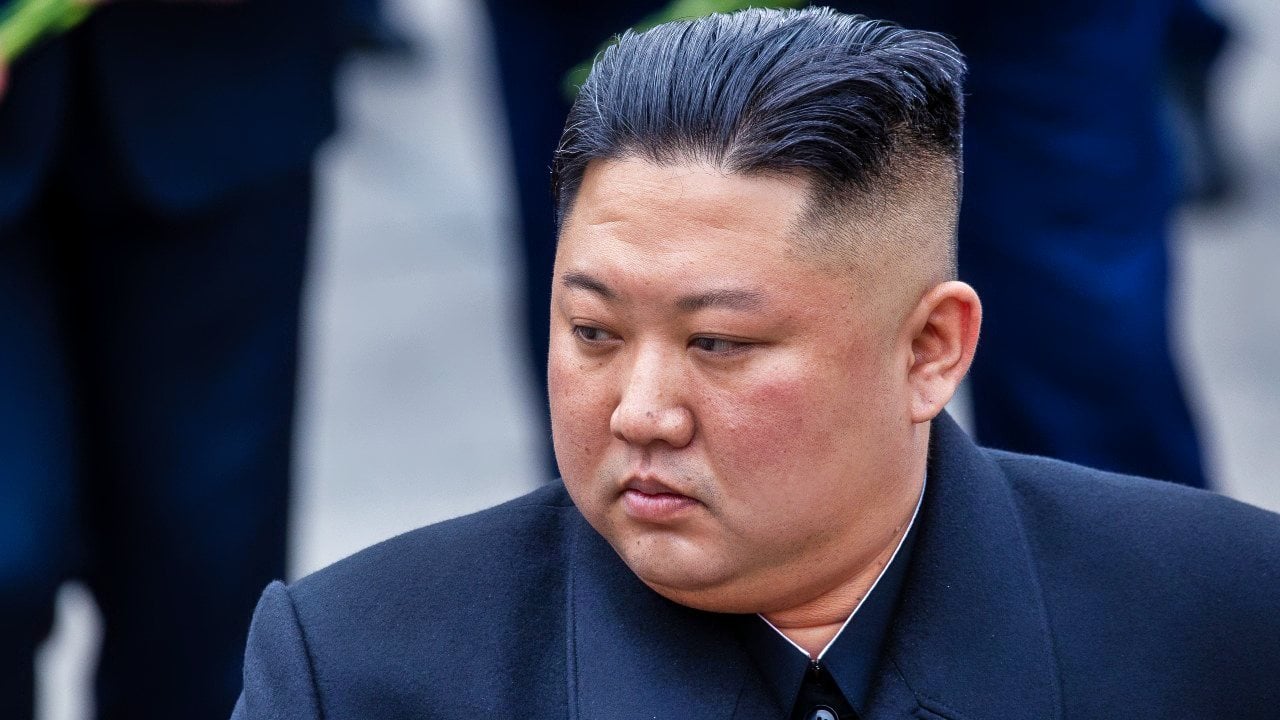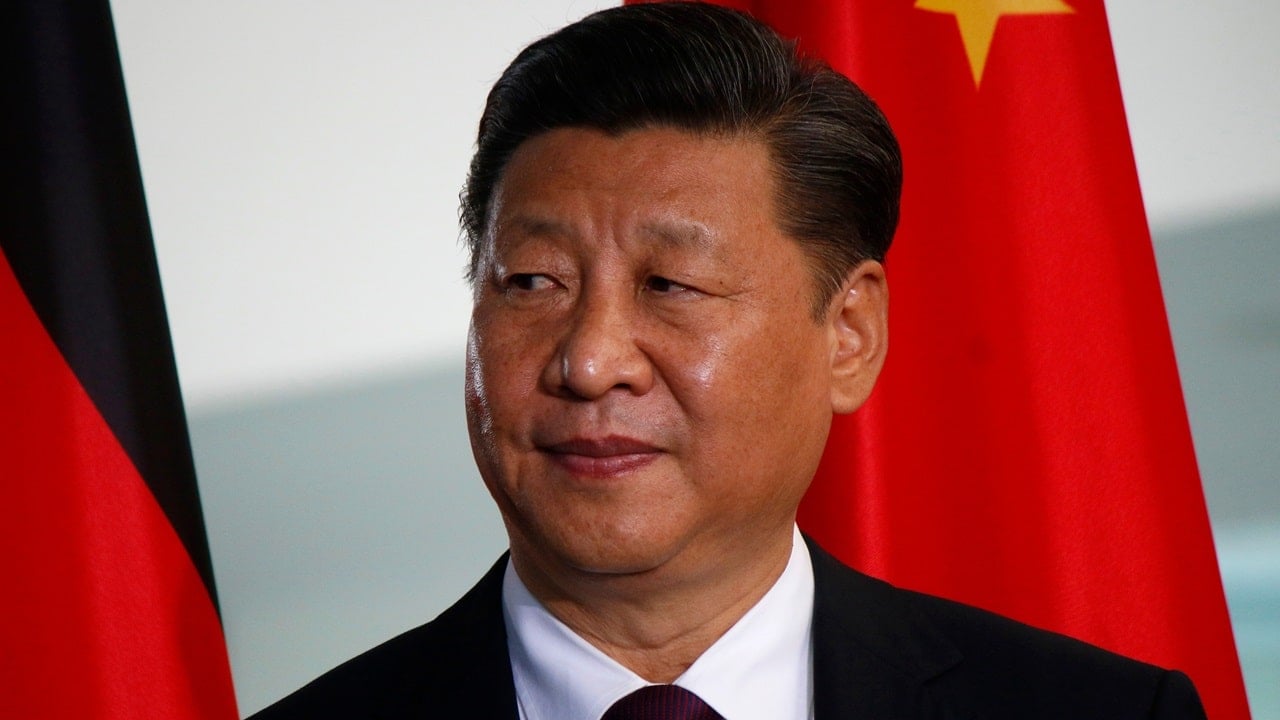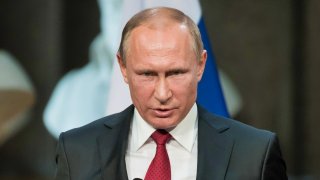Meet the CRANKs: How China, Russia, Iran and North Korea Align Against America
Setting aside “Axis of Evil,” or its calibrated stepchild “Axis of Upheaval,” what might be a better name for the China-Russia-Iran-North Korea cluster? Consider an acronym—"CRANK,” representing China-Russia-Iran-North Korea.
A deepening alignment among China, Russia, Iran, and North Korea is drawing considerable attention as the United States and its allies confront new challenges from these four nations, both individually and in various assortments. Yet in addition to the policy problems this cooperation poses, Washington faces another difficulty: what to call them?

Some are eager to brand these American adversaries as a new “Axis of Evil,” reassigning former President George W. Bush’s two-decade-old label for Iran, Iraq, and North Korea. Yet like efforts to define international relations as a semi-apocalyptic struggle between democracies and authoritarian states, the rhetoric of “evil” makes America’s job harder rather than easier. Moralistic rhetoric undermines rather than facilitates opportunities to exploit gaps between U.S adversaries whose interests are not identical. Beijing, Moscow, Tehran, and Pyongyang are each trying to drive wedges between Washington and allied capitals. America would benefit from a greater ability to attempt the same.
Like twenty years ago, another weakness of “Axis of Evil” is that the United States has allies and partners whose conduct does not meet U.S. standards for democracy and/or human rights. Moreover, because America will be better able to compete with and ultimately prevail over its adversaries with more partners like this, Washington will strive to find and win them, much as it did during the Cold War and has done since.
An Economist Intelligence Unit assessment describe a little over 14% of the world’s countries as “full democracies,” around 30% as “flawed democracies,” and almost 56% as either “hybrid regimes” or authoritarian. Since the United States is unlikely to compete effectively with its adversaries with the support of just 14% of governments, those who want the United States to succeed in mobilizing international support for itself and its goals should certainly hope that America is able to secure the support of partly democratic or even wholly non-democratic governments.
American officials and politicians could also do better in acknowledging U.S. domestic challenges. Our government and our society have fallen short at times and will fall short again in the future. Human beings and human institutions are inherently imperfect, no matter where they are and which governance they adopt.
Vocally embracing a struggle against evil while visibly contending with our inner demons, as we undoubtedly will, makes the United States more vulnerable to charges of hypocrisy and double standards from China, Russia, and others. And it makes the charges more believable for citizens in authoritarian and hybrid regimes, whose governments typically have considerable influence over their domestic media. The share of the world’s population living in hybrid and authoritarian regimes closely mirrors those regimes’ share of the world’s governments. Moreover, even at home and among U.S. allies, these charges might find more support than many prefer to admit.

Some could argue that former President Ronald Reagan famously referred to the Soviet Union as “an evil empire” in a 1983 speech and that Reagan’s clear moral position was effective in defining the contrast between the United States and its superpower foe. Though Bush’s language echoed Reagan’s, former Bush speechwriter David Frum—who introduced the term—has said that he drew inspiration not from Reagan, but from an earlier U.S. President, Franklin Delano Roosevelt.
Since Reagan chose to invoke “evil,” however, it is useful to examine his remarks. Importantly, several paragraphs prior to his historic statement, Reagan forcefully addressed America’s behavior in similar terms: “Our nation, too, has a legacy of evil with which it must deal,” Reagan said, referring obliquely to slavery, before declaring that “there is no room for racism, anti-Semitism, or other forms of ethnic and racial hatred in this country.” Few leaders today seem to recall Reagan’s humility about America to the same extent that they remember his pride and optimism. Modern Republican politicians routinely deride such “apologies.”
Meet the CRANKs - China, Russia, Iran and North Korea
Setting aside “Axis of Evil,” or its calibrated stepchild “Axis of Upheaval,” what might be a better name for the China-Russia-Iran-North Korea cluster? Consider an acronym—"CRANK,” representing China-Russia-Iran-North Korea.
CRANK captures three essential components of the alignment among these four nations.
-First, the four CRANKs are cranky about America and especially U.S. foreign policy. They reject the idea that America should have a special role in international affairs and dismiss U.S. interpretations of international law, including the notion of a U.S.-defined “rules-based order.”
-Second, to American ears, their officials often sound like cranks, that is, like eccentric conspiracy theorists who live in and describe an alternate reality in their public comments. This is especially evident in how the four governments often characterize U.S. behavior and goals.
-Third, their leaders aspire for their countries to become cranks in the mechanical sense, that is, levers to turn the great mass of the international system in their favor. Chinese and Russian officials often express this view and appear to see their governments as the instruments that will bring about a post-American age.

A critical caution is that “crank” and “cranky” are dismissive terms. They reflect attitudes that U.S. officials and non-governmental analysts must strenuously avoid if they are to develop effective policies to respond to the four governments, whether individually or in combination. America can ill-afford glib or superficial appraisals of these nations, their governments, or the challenges they present. Faulty assumptions, sloppy analysis, and dangerous policies—whether ours or others’—could make the twenty-first century the deadliest that humanity has yet experienced.
One final point is that the CRANKs are not—at least not yet—a quadrilateral group. Most of their collaboration is bilateral, such as China-Russia diplomatic coordination, military exercises, and trade, Iran’s and North Korea’s arms sales to Russia, or China’s economic support of North Korea. Rare events are trilateral, including a series of China-Russia-Iran naval exercises in the Gulf of Oman. Naming groups can give them greater cohesion, however, as appears to have occurred with the BRICS. Fortunately, Beijing, Moscow, Tehran, and Pyongyang might not find “CRANKs” too attractive as a label.
About the Author: Paul J. Saunders
Paul J. Saunders is President of the Center for the National Interest and a member of its board of directors. His expertise spans U.S. foreign and security policy, energy security and climate change, U.S.-Russia relations and Russian foreign policy, and U.S. relations with Japan and South Korea. Saunders is a Senior Advisor at Energy Innovation Reform Project, where he served as President from 2019 to 2024. He has been a member of EIRP’s board of directors since 2013 and served as chairman from 2014 to 2019. At EIRP, Saunders has focused on the collision between great power competition and the energy transition, including such issues as energy security, energy technology competition, and climate policy in a divided world. In this context, he has engaged deeply in energy and climate issues in the Indo-Pacific region, especially U.S. relations with Japan and South Korea. His most recent project at EIRP is an assessment of Russia’s evolving role in the global energy system.
All images are Shutterstock.


